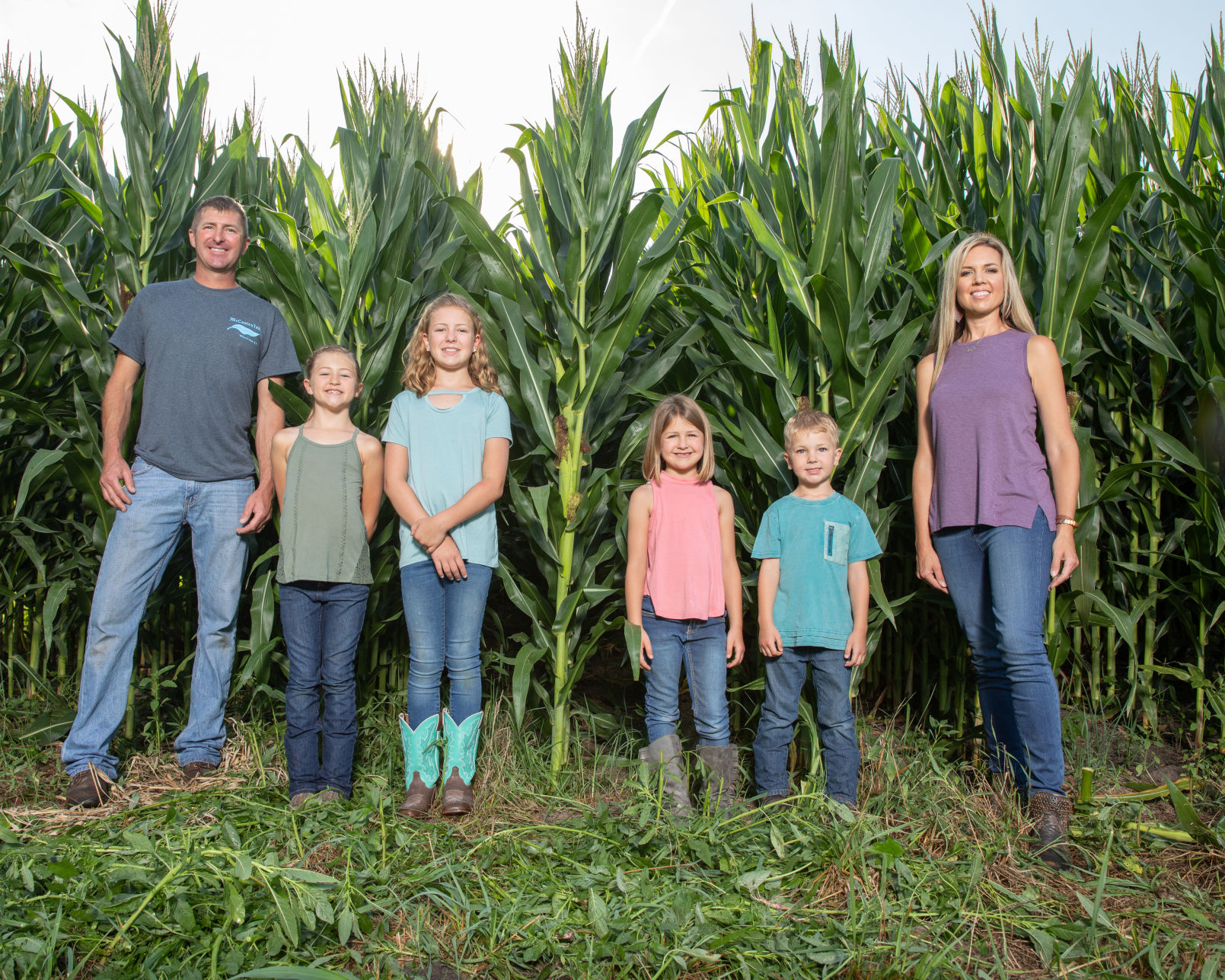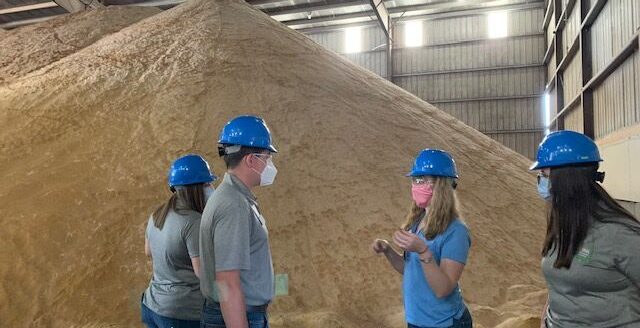Farm families contribute to STEM education
2019 has been a challenging year for corn producers, with floods and other extreme weather delaying or preventing planting altogether in parts of the Corn Belt. Growing conditions and yields may vary from year to year, but the importance of science and technology in growing corn remains constant.
The Kansas Corn Growers Association and the Kansas Corn Commission aim to help increase students’ science literacy with the commission’s publication of a new corn-based children’s book, “We Grow Corn—Raising corn on a Kansas family farm.” The book and an accompanying video series are the latest components of Kansas Corn’s award-winning science, technology, engineering and mathematics program for teachers.
Earlier this year, the National Corn Growers Association’s recognized Kansas Corn STEM with a Reaching for Excellence award. The program reached more than 1,300 teachers and 50,000 students in the 2018-2019 school year.
Sharon Thielen, Ph.D., director of education for Kansas Corn, wrote “We Grow Corn,” which follows the Brad and Danyelle McCauley farm in northeast Kansas and the Steve Rome farm in southwest Kansas. Thielen said farmers played an important role in creating the book and video series.
Several years ago, Kansas Corn decided to focus on putting a portion of checkoff dollars toward education, Thielen said, and she was tasked with developing educational programming. Thielen has a background in curriculum and instruction and previously served as an assistant dean at Kansas State University.
“We rely a lot on teachers to tell us what they need, and then we rely on farmers to deliver the correct message,” she said. Teachers previously told them there was a lack of videos for students about growing corn. Children’s books that report the correct facts about corn were also needed.
Thielen farms with her husband, has girls herself and knows what they like in a book. But she knew she couldn’t tell that story alone.
“One thing that’s also part of the book is comparing how growing corn is different in northeast Kansas than it is in western Kansas. It has to involve several farmers that grow corn in different ways to be able to share the full message,” Thielen said.
Videographer and photographer Ray Martinez visited the McCauley farm five times over the course of a year. He captured the family—kids included—and followed them around the farm to see what they were doing in action through multiple seasons.
“We did a full year of capturing video of the growing process of corn—clear from what you do in the winter to harvest—and then we wrote the book around how you grow corn,” Thielen said.
Thielen also spent time with the family and asked basic questions that kids might ask: How do you put a seed in the ground? What is a GPS? What is that thing going off the side of the planter?
“At the end of the day, you want those answers to come from farmers because they’re the ones that are the experts, truly. “They also understand the importance of getting into the classroom, so I think they’re pretty invested in the project too,” she said.
“This project was important to our family because it supports education in our schools by showing how we grow corn on our family farm,” Brian McCauley said in an announcement for the book. “Science and technology play a big role in growing corn and other crops in Kansas.”
That’s why corn farmers support Kansas Corn’s efforts to promote STEM learning in the classroom, he said.
Kansas Corn STEM lessons follow Next Generation Science Standards and use corn as a real-life example to illustrate STEM concepts for students at different grade levels. The program offers educational units for kindergarten through high school as well as professional training for Certified Agriculture Science Educators.
Instructional kits for teachers
Thielen said Kansas Corn is going into its third full school year of offering 2- to 3-week, inquiry-based lessons for elementary students. The hands-on lessons cover topics such as sprouting corn seeds and understanding soil and water needs.
“The kids will investigate. We don’t tell them the answers to the problems. Instead, we have them figure it out on their own. So, for example, kindergarteners will dissect a big corn plant, figure out where the seed is on a corn plant, and plant different parts of the plant to see what grows,” she said.
Elementary teachers who request a lesson from Kansas Corn receive kits with all the supplies they need to complete the lesson, and no additional training is necessary at this level.
For middle and high school teachers, Kansas Corn STEM offers around 32 labs on topics including corn, ethanol, biotechnology and genetically modified organisms. To teach these complex lessons effectively, interested teachers attend a two-day Seed to STEM workshop in the summer. Thielen said participating teachers tour an ethanol plant, learn and practice teaching 12 labs and have dinner at a local farm to visit with corn producers.
“They’ll dissect corn plants, they’ll learn about growing degree days, do a GMO speed dating game … One of labs in our tracks gets so far they can break up a crumb of food, put it in the machine and see if it has a GMO in it.” Thielen added that the teachers also make their own ethanol.
“The beauty of this and what has made our program so successful is that teachers get $500 worth of supplies and training to teach the lesson,” she said.
She said that teachers previously told Kansas Corn that free curriculum and training that makes them excited to try something out in the classroom is plentiful. But their schools often don’t have the funds necessary to get supplies, so they can’t use the lessons in the classroom.
“That’s what Kansas Corn does—it goes a step beyond and provides them with those supplies,” Thielen said. They have also partnered with Renew Kansas to provide distillation kits for classrooms so that students can make ethanol.
“But what we’re constantly doing is listening to teachers and constantly trying to fill the gap on what’s missing,” she said. Kansas Corn will continue providing resources like the “We Grow Corn” book to help teachers “continue the conversation about agriculture in the classroom.”
Eight videos go along with the book and are available online. Teacher guides will be available too.
Teachers may learn more about the “We Grow Corn” book and videos as well as request Kansas Corn STEM lessons and materials at https://kscorn.com/request-materials, kscorn.com/education or wegrowcorn.com.
Shauna Rumbaugh can be reached at 620-227-1805 or [email protected].



